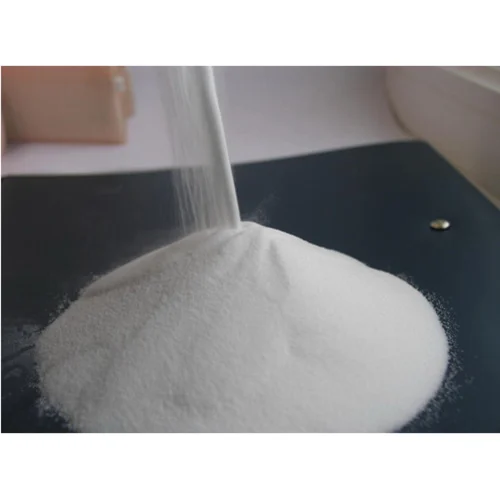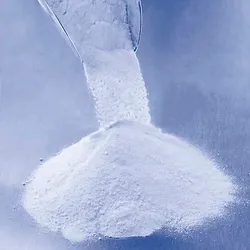فهرست محتوا
- 1 What is Powder Antifoam?
- 2 Familiarity with the Applications of Powder Antifoams
- 3 Features of Using Powder Antifoam
- 4 Conclusion
- 4.1 1. What is powdered anti-foam and what are its applications?
- 4.2 2. What are the advantages of using powdered anti-foam?
- 4.3 3. How can the right type of powdered anti-foam be selected?
- 4.4 4. Can incorrect use of powdered anti-foam cause problems?
- 4.5 5. How should powdered anti-foam be stored and used?
What is Powder Antifoam?
Powder antifoam, also known as powder defoamer, is a type of chemical used to control and reduce foam formation in various industrial processes. Foams typically occur when air or gas is introduced into liquids, creating small bubbles. This phenomenon is particularly common in industries dealing with viscous liquids, active chemicals, or high-temperature processes. Foam formation can lead to serious problems such as reduced efficiency, disruption in production processes, lower quality of the final product, and even equipment damage. If you’re looking for Silicone Antifoam, you can visit the best antifoam manufacturer, Bonyan Shimi.
Powder antifoams are widely used in various industries due to their ease of use, high durability, and effectiveness under harsh operational conditions. Antifoams typically consist of compounds with water-repellent properties. By reducing the surface tension of liquids, they prevent foam formation. Furthermore, the powder form of these antifoams makes them easy to use in various industrial processes, such as chemical manufacturing, petrochemicals, food processing, and pharmaceuticals.

When selecting the appropriate type of powder antifoam, factors such as the type of process, operational conditions (temperature, pressure, pH, etc.), and the type of liquids used should be considered. Incorrect use of these materials can lead to other issues such as particle accumulation in equipment, changes in the properties of the final product, or even unwanted chemical reactions. Therefore, careful selection, tailored to industrial needs, along with precise consumption settings, is of paramount importance.
Overall, powder antifoams are recognized as key tools in foam control across many industries due to their significant advantages. They play a crucial role in improving quality, increasing productivity, and reducing production costs.
Familiarity with the Applications of Powder Antifoams
Powder antifoam has extensive applications in various industries, each differing due to the unique properties of the material and the industrial needs associated with it. Below are some of the main applications of powder antifoams and explanations for each:
Chemical Industries
Powder antifoam is widely used in the production of chemical products such as resins, paints, plastics, and detergents. In these processes, foam can reduce the efficiency of chemical reactions, cause issues in equipment, and lower the quality of the final product. The use of powder antifoam helps control and reduce foam, improving production efficiency and product quality.

Food Industries
In the food industry, especially in the production of dairy products, beverages, and processed foods, foam can cause issues in packaging, storage, and product quality. Powder antifoam is used in these industries to prevent foam formation during processing and packaging. This not only helps preserve the quality of products but also improves production processes.
Pharmaceutical and Hygiene Industries
In the pharmaceutical industry, especially in the production of medicines and hygiene products, foam can lead to contamination and reduced product quality. Powder antifoam is used in these industries to maintain sterile conditions and prevent foam formation during the production of pharmaceuticals and cosmetic hygiene products.
Oil and Gas Industry
In the oil and gas industry, foam can cause problems in drilling, refining, and transportation processes. The use of powder antifoam helps reduce foam and enhances the efficiency and safety of operations. This is especially critical in deep drilling and harsh conditions.
Water and Wastewater Treatment
In water and wastewater treatment, foam formation can reduce the efficiency of filtration and separation processes. Powder antifoam helps control and reduce foam, improving the efficiency of treatment systems. This is particularly important in large treatment plants processing large volumes of water and wastewater.

Textile Industry
In the textile industry, powder antifoam is used to prevent foam formation during washing, dyeing, and finishing processes. Foam can cause stains, color defects, and unevenness in fabrics. The use of powder antifoam improves fabric quality and reduces production defects.
Paper and Pulp Industries
In the paper and pulp production process, foam can lead to bubble formation and surface defects in the paper. Powder antifoam helps control foam and improves the surface quality of paper.

These diverse applications demonstrate that powder antifoam plays a vital role in improving industrial processes, enhancing product quality, and reducing production costs. Selecting the right material for each industry and specific process requires precision and expertise to fully benefit from its advantages.
Features of Using Powder Antifoam
Using powder antifoam in industrial processes offers several benefits, some of the most important of which are outlined below:
- Due to its unique structure, powder antifoam effectively prevents foam formation and eliminates existing foam. This feature helps improve process quality and the final products.
- Powder antifoam, due to its ability to perform at various temperatures and pressures, is applicable in a wide range of industrial processes. This versatility allows these materials to be used in industries like oil and gas, chemical, food, and pharmaceuticals.
- Powder antifoam is easy to use and transport, and its powder form makes storage easier than liquid antifoams. This feature reduces transportation and storage costs.
- Powder antifoam generally has high durability and longevity. This reduces the need for frequent use of these materials in processes, resulting in cost savings and increased productivity.
- By preventing foam formation, powder antifoam can avoid problems such as reduced equipment efficiency, pipeline blockages, and early equipment failure. This results in reduced maintenance costs and extended equipment life.
- Using powder antifoam in production processes leads to the production of higher-quality products free from foam-related defects. This is particularly important in the food, pharmaceutical, and chemical industries, where the quality of the final product is critical.
- Powder antifoams can be customized based on the specific needs of each industry or process. This allows manufacturers to benefit from a product with optimal performance for their specific conditions.
- Finally, powder antifoam increases overall productivity by reducing downtime and optimizing processes. This benefit can directly impact profitability and competitiveness.
These advantages demonstrate that powder antifoam plays a key role in optimizing industrial processes and improving product quality. Proper selection and optimal use can have significant positive effects on the performance of various industries.
Conclusion
In conclusion, powdered anti-foam serves as a vital tool in controlling and reducing foam in industrial processes, playing a key role in improving efficiency, quality, and production productivity. With characteristics such as high effectiveness, compatibility with various operating conditions, ease of use, and long-lasting durability, this substance allows various industries to better control foam, preventing problems arising from it and ensuring the production of higher-quality final products. Bonyan Shimi Hamgam Sanat is the best manufacturer of anti-foam for industries.
The optimal selection and use of powdered anti-foam can directly impact the reduction of production costs, increase the lifespan of equipment, and enhance industrial processes. Since the needs and conditions of each industry are different, choosing the most appropriate type of powdered anti-foam for each application is essential and requires accuracy and expertise. Ultimately, powdered anti-foam is not only a supplementary material but also a key factor in optimizing production processes and increasing the profitability of companies.



